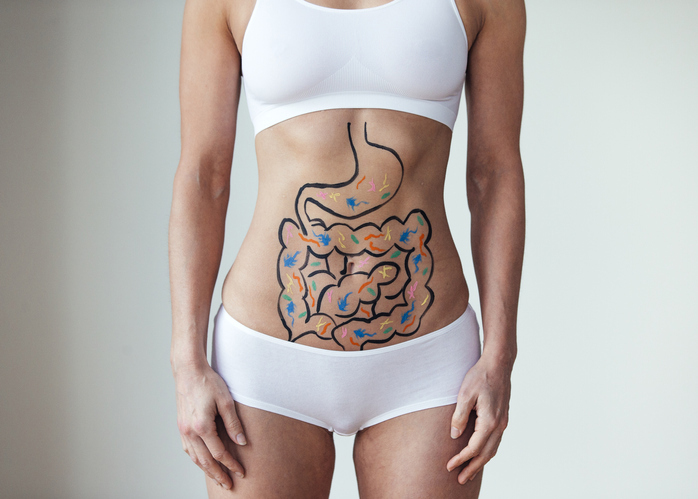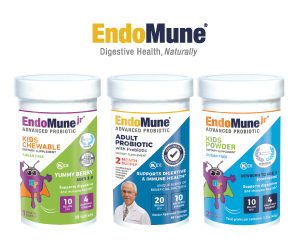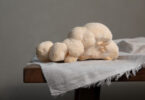With all we are taught about cleanliness and the importance of eradicating bacteria, it is difficult to imagine how certain probiotic bacteria can benefit and even strengthen the immune system; however, current research reveal that probiotic bacteria bring balance to the digestive system and improve health.
What Are Probiotics?
Probiotics are live bacteria or yeast cultures that enter the body through foods or dietary supplements. They help replenish beneficial bacteria killed by antibiotics and alter existing bacteria making it more resilient. They help digest food, and they produce antibodies that protect against viruses and boost the immune system.
“Colon bacteria is a barrier against disease,” says Glen Arluk, gastroenterologist with Gastroenterology Ltd. of Virginia Beach, Va.. “By keeping that healthy, it can keep your whole body healthy.”
Probiotics are vital nutrients, explains Gale Pearson, registered dietician for Tidewater Physicians Multispecialty Group in Hampton Roads and Williamsburg, Va.. Scientists only began naming and identifying vital nutrients in recent decades; however, foods containing vital nutrients like Kefir, “the probiotic of probiotics” have been used since Biblical times for their medicinal qualities.
Probiotics Travel Well
Probiotics are used to prevent travelers’ diarrhea, brought on when travelers ingest infectious agents in water or contaminated foods and antibiotic diarrhea brought about when antibiotics indiscriminately kill good and bad bacteria. Probiotics are also used to reduce the symptoms lactose intolerance and both forms of inflammatory bowel—ulcerative colitis and Crohn’s Disease.
Research also suggests that probiotics can be helpful in the treatment of ear, nose and throat infections, urinary tract infections, vaginal yeast infections and staph infections, Arluk explains.
What Strains Should I Take?
Generally, it is difficult to determine which strains at what dosage are the most effective in treating specific ailments because there have been few large-scale studies highlighting specific strains. However, certain strains like VSL#3 have been proven effective in treating the symptoms of ulcerative colitis and pouchitis, Arluk says. When it comes to taking probiotics, both specialists prefer their patients try probiotic containing foods such as yogurt, sauerkraut and miso before considering dietary supplements.
Taking probiotics through food provides patients with vitamins, carbohydrates, nutrients, proteins and more in addition to probiotics, Pearson explains.
A lot of people don’t understand that you can get probiotics from food,” Pearson adds.
“People try to put them in a bottle, but you just can’t.” It is impossible to substitute supplements for food, she says. For supplements to be effective, the strains must still be alive, Pearson asserts. “How long can you keep something alive in a bottle on a shelf?”
What About Prebiotics?
Both Pearson and Arluk recommend that patients increase their intake of prebiotics or non-digestible food ingredients found in fruits, vegetables and whole grains that work alongside probiotics stimulating growth and activity among good bacteria and helping probiotics work more effectively.
If patients do not respond to foods containing probiotics or if they refuse to eat them, Arluk suggests dietary supplements. Not every supplement works for every patient, he says. When a supplement containing a particular probiotic strain does not work for a patient, he recommends other supplements containing different strains.
It can take between two and four weeks to see the full benefit of a probiotic supplement, Arluk says. “This is not something that is going to work overnight.” There is no clear-cut way to determine which supplement will work for a patient. “It’s a lot of trial and error,” he says.
Are They Safe?
Probiotics are safe for most people; however, there are cases in which people should exercise caution before beginning a probiotic regimen, Arluk says.
Consumers should consult a doctor before giving probiotic supplements to the very young, those undergoing cancer treatment and those with compromised immune systems. The doctor can determine if introducing good bacteria will benefit the patient or disrupt their fragile immune system.
Probiotic supplements come in a variety of forms from refrigerated pills to powdered supplements. There is little evidence to suggest that one form is more effective than another, Arluk says. “As long as you get the bacteria in, that is the most important thing.”
Foods Rich in Probiotics
Probiotics are vital nutrients with positive overarching health benefits. Below are food and drink items that often contain probiotic bacteria; however, this is not a conclusive list and not every item listed always contains adequate amounts of probiotic bacteria to offer health benefit. It is important to research the food or drink item and its manufacturer if you are hoping to significantly increase probiotic bacteria levels in your diet.
| Fermented Dairy Products
Kefir Cottage Cheese Buttermilk Frozen Yogurt Cheese
|
Non-Dairy Fermented Products
Tempeh Miso Soy Sauce Sauerkraut Kimchi Other Pickled Vegetables Products With Probiotics Added
|
Originally published in the Health Journal 8/13/2013.








